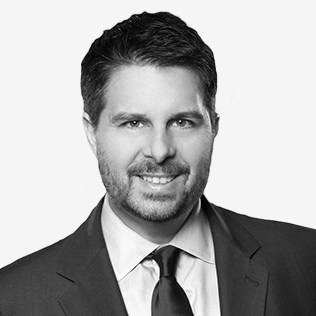The Global PR Communication Market: Opportunities of the New Moment
On April 27, 2021, JeffreyGroup CEO Brian Burlingame participated in an event entitled “The Global PR Communication Market and the Opportunities of the New Moment” hosted by the Brazilian Association of Communications Agencies (ABRACOM). Following are excerpts from Mr. Burlingame’s presentation.

How has the pandemic changed agency operations and the PR market?
Traditionally, public relations has been ranked as a very stressful and demanding profession. It’s a business that depends entirely on a creative collaboration of people and on client service. The majority of our efforts are focused externally: helping other people, companies and organizations reach their objectives, manage their issues and solve their problems. So, when faced with a pandemic that affected all people, we needed to dedicate even more time on internal matters – on our own people – while concurrently serving the clients at a time when many of them needed us the most. I think it’s safe to say that our profession will retain its top ranking among the most challenging professions for some time.
This focus on our people isn’t new, but it has certainly intensified. And it’s a challenge for small and mid-sized firms that may have little or no HR staff and that depend on the owners and other leaders of the agency to manage and care for the team while also managing and driving the business.
Over the past year, Jeffrey, the founder of JeffreyGroup, and I spent much more time on communications with the entire company than ever before, trying to partially make up for the time we usually spend visiting our offices and meeting with everyone in person. Our communications have included everything from formal trainings to informal group chats – with the primary goal of helping employees feel connected to the company.
One of the biggest challenges I see post-pandemic is how agencies will be able to maintain company culture and employee engagement. Of course, this is a challenge for client companies as well; but the special nature of our agency business, the value created through collaboration, makes these issues vital not only to our success, but to our survival. This reality drives us to be creative in how we facilitate and promote interaction between teams, the benefits we offer to our employees, and how we continue to ensure strong collaboration to provide clients with the most effective and creative solutions.
In terms of the PR market and client-agency relations, a future that involves a significant amount of remote work by agency staff brings the risk that clients may lose sight of the value of hiring an agency. With teams primarily working remotely, some challenges may be intensified: clients could miss out on the best thinking and solutions an agency can offer; the client-agency relationship could become more subordinated to the client-team relationships – and the same for agency staff; agency staff could become more quickly frustrated with the lack of variety and learning opportunities, and could experience intensified isolation since they aren’t a member of the client company and don’t have much contact with agency colleagues.
What are the main business demands for communication and the most demanded products and services?
The most demanded products depend on whom you’re working with. To make a broad generalization, communications directors at companies tend to focus on earned and owned media, corporate reputation products and brand awareness. When we’re speaking to marketing executives, they want to see creative campaigns that differentiate the brand and meet commercial objectives. All clients want to see measurable results, so we must be able to think in terms of SEO and lead generation as well as social reach and media hits.
Last year, the pandemic delayed and slightly interrupted the launch of JeffreyGroup’s Social Impact and Sustain ability practice that had been in development since mid-2019. The practice was conceived in response to a global trend of companies becoming focused on their corporate or brand purpose, and how their organizations are prepared to respond to consumer and investor demands regarding global sustainable development goals. To be clear, this is not only about environmental issues, but a range of issues related to poverty and hunger, human rights and equality, natural resource management, climate and other global priorities. This is the next phase of corporate citizenship and corporate social responsibility. At JeffreyGroup, we see a big opportunity for communications companies to consult in this field which is intrinsic to corporate reputation.
What is the future of PR and Communications leaders? What are the main skills and capabilities they will need to have?
Primarily, I think we should continue to be flexible and adaptable. Marketing and communications continue to evolve at a rapid pace, along with our communication and consumption habits driven by the pace of technology. We should continue to incorporate some of the skill sets and best practices that have traditionally been at the core of other marketing disciplines, such as data-driven insights, tracking the customer journey and generating commercial outcomes. We must remain curious and proactive about trends such as artificial intelligence and how that will impact our clients’ businesses and our own capabilities. I believe that marketers who come from a PR and communication background have distinct advantages in their ability to address multiple stakeholders, to anticipate issues and contingencies and in promoting authenticity and empathy, which are valuable qualities that need to be protected and championed in our ways of communicating, interacting and conducting business.

Brian Burlingame, Chief Executive Officer, JeffreyGroup

